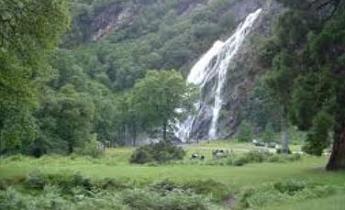How Canada can power up reconciliation with clean energy projects
For the last century, Canada has leveraged major power-development projects as tools for regional economic development. We believe they should be used as tools for reconciliation with First Nations in Canada.
This may seem darkly ironic, since First Nations have historically suffered more from the construction of hydroelectric dams than other Canadians. These power projects, such as the Peace and Columbia River dams and Alcan’s Kemano project near Kitimat, were justified on the basis of industrial expansion, a means of opening up British Columbia’s substantial forest, mining and aluminum sectors. The economy boomed, but little of the benefit, and much of the environmental cost, landed with First Nations’ communities.
New power-project development remains as vital as ever to B.C.’s economy and environment. The clean electrification of new and existing industry is critical if B.C. is to meet its targets for greenhouse gas reduction; it currently does not have the power to meet the demands of this energy transformation.
With this next round of power-project development, however, First Nations must share in the benefits, and we must take the lead on environmental implications.
Indeed, few – if any – other sectors of the economy can deliver B.C.’s and Canada’s promised reconciliation, let alone achieve it largely with expenditures that federal and provincial environmental targets already demand.
To this end, Coastal First Nations (CFN) would like to jointly explore with B.C. and Canada the idea of developing a Northern Power Authority (NPA) for northwestern B.C.
Under the NPA, clean power from onshore and offshore wind, run-of-river hydro, solar, and geothermal could be developed by First Nations across the north, aggregated through new transmission and distribution infrastructure, and then resold – to BC Hydro, directly to industry, and for export – to help power a new clean economy.
The model CFN is proposing has a long history in B.C. Under the 1995 Columbia Basin Accord, Columbia Power and the Columbia Basin Trust together received $500 million to develop, as joint venture partners, three power projects in the Columbia River basin. The Trust uses its income from the projects to help residents of the region with economic, social and environmental improvements in the basin.
CFN was established by eight B.C. First Nations to work together with a common vision of protecting the environment and enabling sustainable economic development on B.C.’s north and central coasts and on Haida Gwaii. During its first 20 years, CFN has led the change to land-use and forest-management practices that are embodied in the Great Bear Rainforest Agreements and other legislation. Its Great Bear Forest carbon credits are produced from a protected area of 68,000 square kilometres and generate 1.1 million tonnes of carbon offsets per year, a significant achievement that benefits all Canadians. Parallel work on marine planning and a new network of marine protected areas helps Canada meet its targets for ocean protection.
Beginning in 2020/21, CFN members, working with Canada, will start to change the look of commercial fisheries on the north Pacific coast. Through a reconciliation agreement signed with Canada in 2019, the new fisheries will repatriate jobs and restore the prominence of the First Nations in fisheries management.
Even with the fisheries agreement, revitalized forestry and wilderness tourism, the Nations of CFN are challenged to provide jobs for our members and revenue for our governments. Remote First Nations, like CFN’s members, need access to large-scale economic development, but the opportunities for this are scarce. A Northern Power Authority could provide jobs, revenue, training, education, and avenues for entrepreneurship in a new clean economy, with First Nations as owners and custodians of the projects on our traditional lands.
The vision of CFN has been to build a new clean economy and a cleaner way of living. We are striving for communities powered by a clean grid instead of diesel generators, fishing boats with hybrid or electric motors, fisheries operated the most environmentally friendly way (i.e., no bottom dragging), new forestry practices that protect biodiversity, and wilderness tourism built on observing, not taking. We must develop clean and renewable electricity as a major economic engine, and use it to attract people and new industries that want to be part of a reconciled society.
Comments
There are 0 comments on this post








